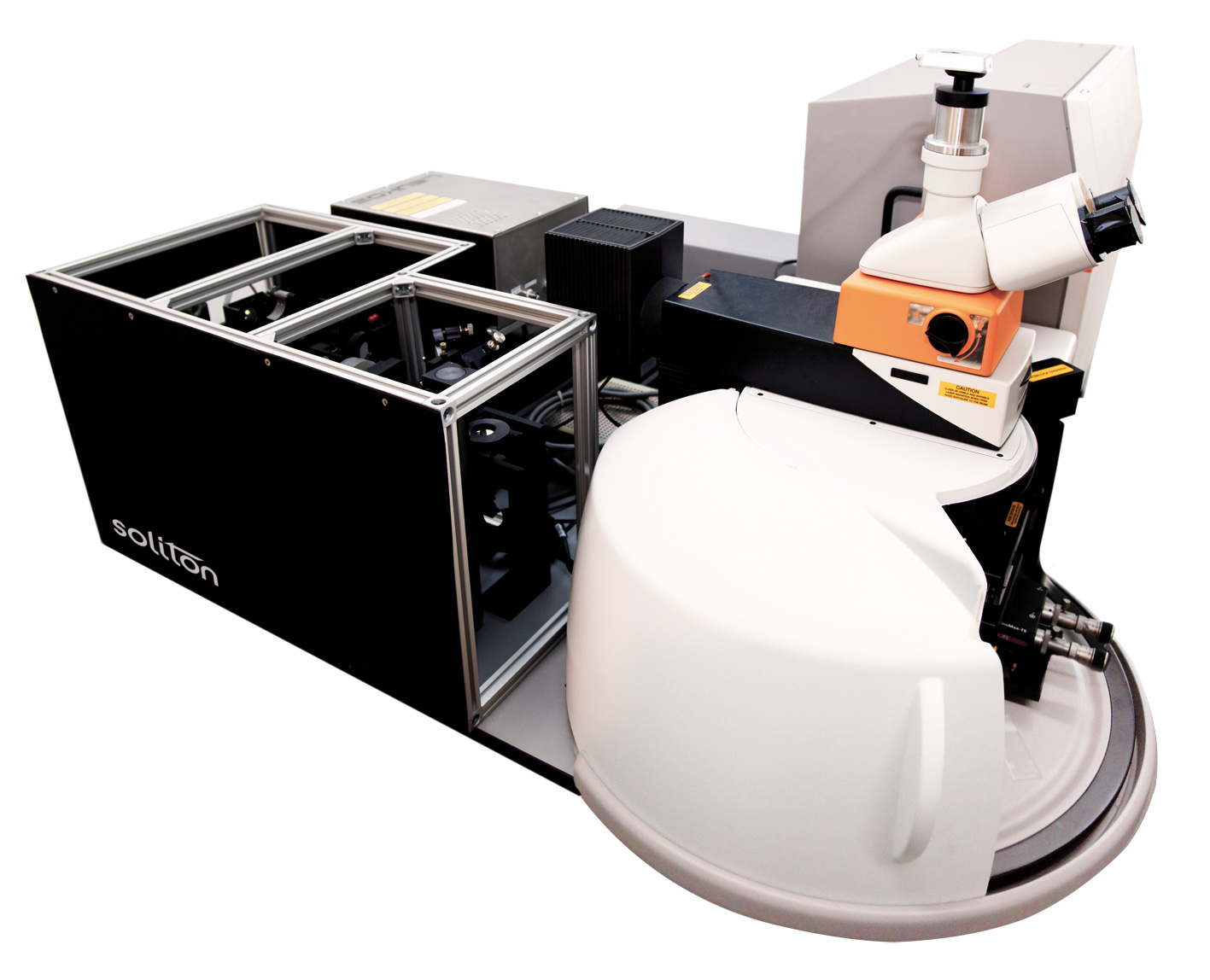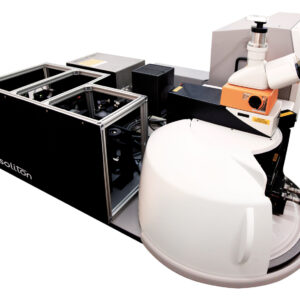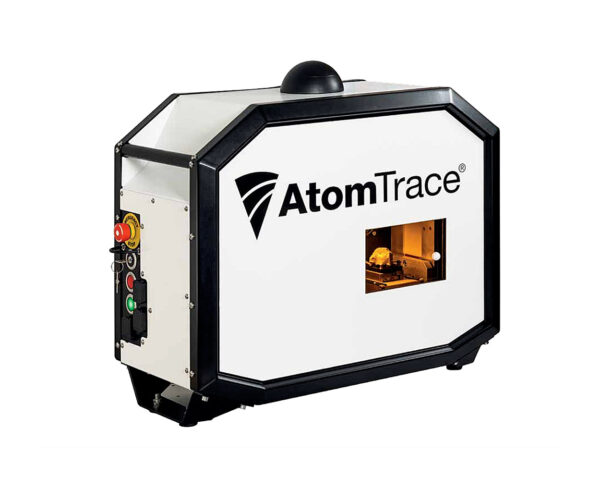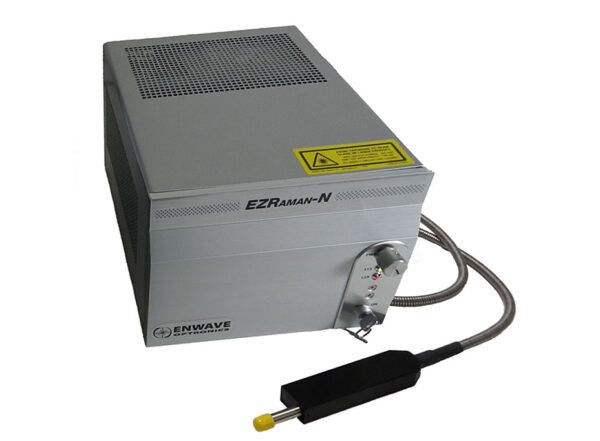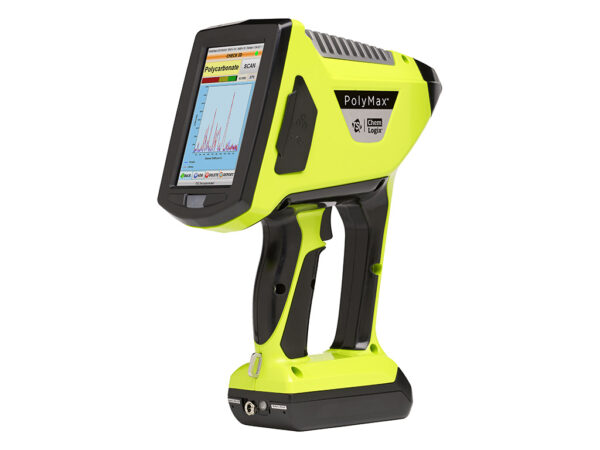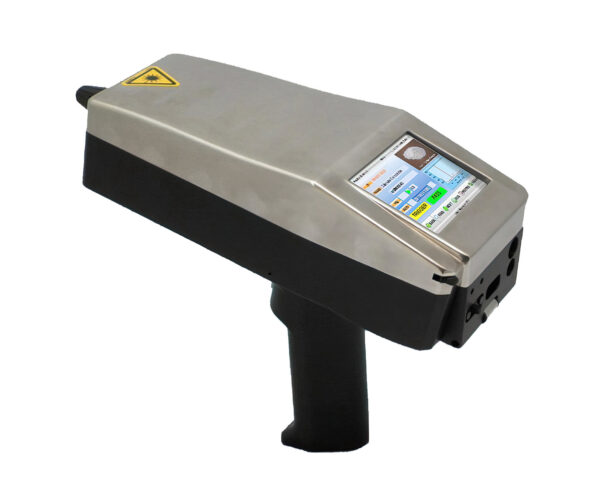CARS (Coherent Antistokes Raman Scattering) has been known for more than 30 years and has certain advantages and disadvantages compared to Raman spectroscopy. The disadvantages include, in particular, the complex laser arrangement required. With the availability of new compact short-pulse lasers and white light generation via photonic fibers, broadband CARS arrangements can now be implemented that are easy to adjust and allow a short measurement time.
Important advantages of CARS are: fluorescence and luminescence suppression as well as a significantly stronger Raman signal.
A CARS option for a Raman microscope is offered, consisting of a sub-ns microchip laser with white light generation, coupling of the two laser beams onto the sample under the microscope and observation of the CARS signal through the Raman microscope. The software of the Raman microscope is used to record the CARS spectra. In this way, the same sample can be examined under the microscope both with the Raman effect and with the CARS effect, with subsequent comparison of both spectra. The CARS option proves to be very useful, especially with strongly fluorescent samples, as is often the case with biological tissues.
An important area of application is medical technology, where rapid mapping of tumor tissue, for example, is made possible. Food analysis and environmental technology are also increasingly flirting with CARS, since Raman measurements are now possible with reasonable effort, which previously failed due to fluorescence.
white light laser and the necessary delay line are also offered separately for customers who want to set up a CARS measuring station themselves.

